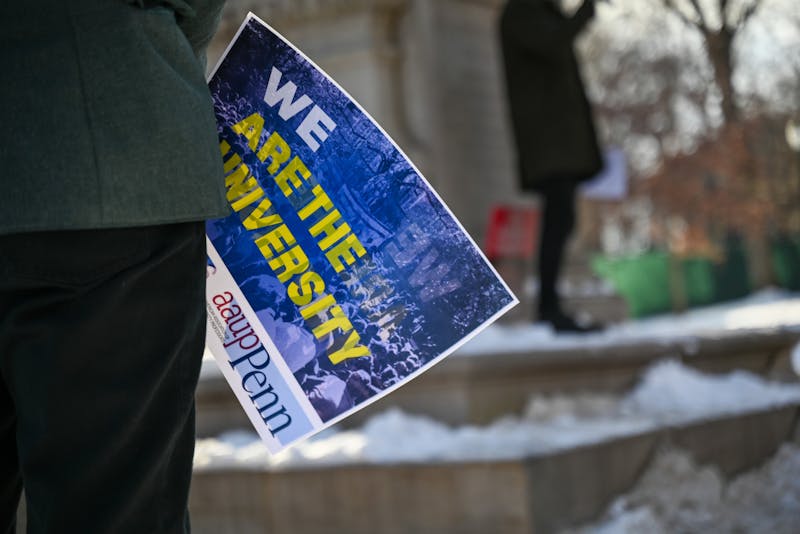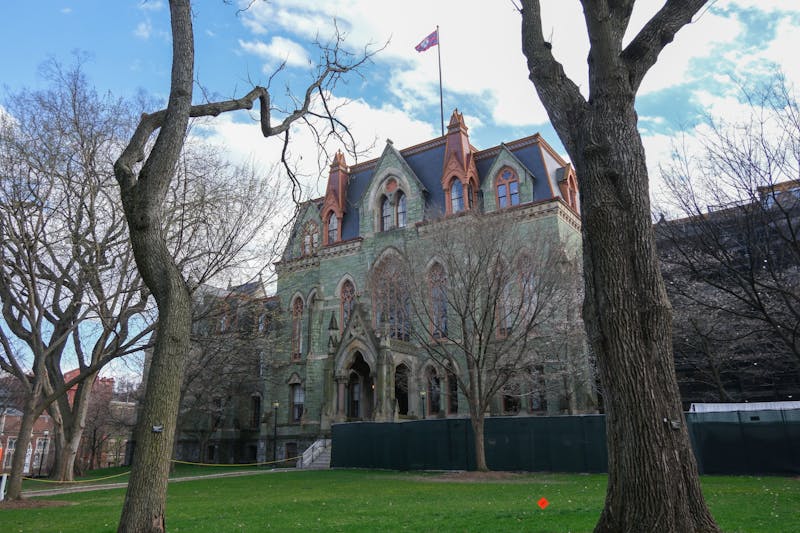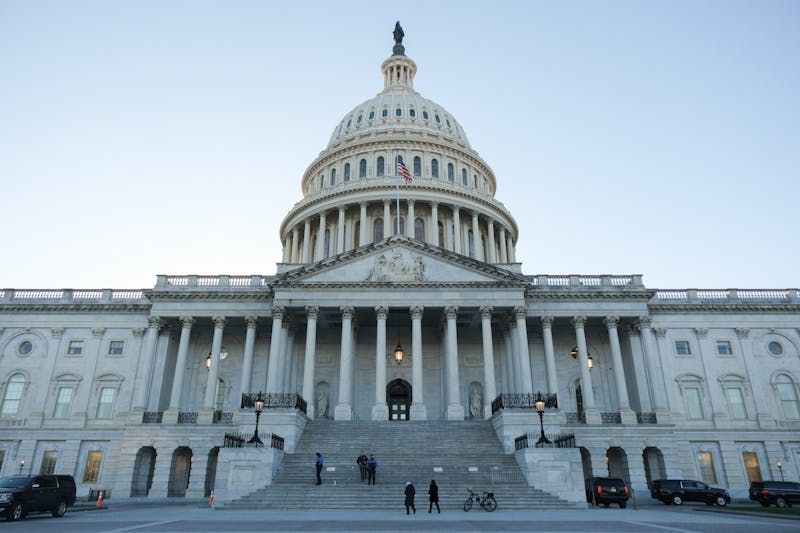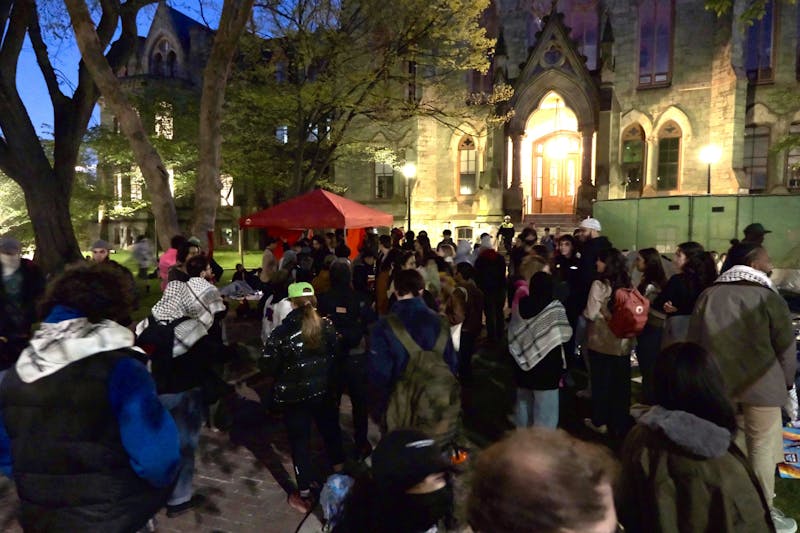
Interim President Larry Jameson announced the findings of the University Task Force on Antisemitism today via an email to the Penn community.
Credit: Abhiram JuvvadiInterim Penn President Larry Jameson shared the final reports from the University Task Force on Antisemitism and the Presidential Commission on Countering Hate and Building Community in an email to the Penn community Thursday afternoon.
In the email, Jameson thanked “faculty scholars, students, and staff, as well as former and current Trustees” for participating in the investigations. He wrote that the task force and commission held listening sessions, reviewed emails, called in subject experts, and conducted surveys to produce the final reports, which can be found on the Task Force and Commission's websites.
“Throughout the process, I know that there were many strongly held beliefs expressed and passionate exchanges, and that these reports are the product of the rigorous, civil, and intellectual debate at the heart of Penn’s excellence,” Jameson wrote.
The report from the task force included several recommendations for the University and specified the timeframes for each initiative. The recommendations from the task force included that the University should clarify its position on boycotting, divestment, and sanctioning.
“We recommend that the University re-issue a clear statement on its opposition to divestment, sanctions or boycotts against Israel, the most recent of which was made by then President Gutmann in 2011,” the group wrote.
The task force also suggested that Penn commit to “incentivize growth and strength in the broad area of Jewish scholarship” by expanding curriculum in several areas.
“This should be a coordinated effort, supported by the University,” the report reads. “The goal is not simply to provide funding for programming and hiring additional faculty and staff, but to further strengthen Penn’s reputation as a leader in education and scholarship in Jewish culture and civilization.”
Following recent protests at Penn, the group also suggested that the University clarify its open expression policies.
“The Task Force underscores our recommendation that the University review existing policies governing student, faculty, and staff expression and conduct to ensure that all policies are consistent, clear, transparent, reflective of Penn’s values, and equitably applied — especially in incidents of antisemitism,” they wrote in the report.
The Daily Pennsylvanian previously reported that Penn’s Committee on Open Expression is calling for a review of the Guidelines on Open Expression, according to a statement sent to the DP.
The report from the Presidential Commission also included several recommendations, some of which are related to policies governing open expression.The group suggested that the University clarify how disciplinary policies work in conjunction with open expression, writing that “the University should circulate an accessible version of the Guidelines on Open Expression to explain the connection and relationship of the Guidelines with other Penn policies.”
The Commission also emphasized the need for new cultural spaces on campus, specifically the establishment of a Middle East and North Africa cultural space, as well as the need for “evaluating existing physical spaces and adding new ones as deemed necessary.”
Former Penn President Liz Magill announced the creation of the University Task Force on Antisemitism in November 2023. The task force was part of a larger plan implemented to combat antisemitism on campus following significant donor backlash and safety concerns. The group — chaired by Morton Amsterdam Dean of the School of Dental Medicine Mark Wolff — was composed of seven faculty members, two students, and six staff, alumni, and trustee representatives.
The same day, Penn also announced the formation of the Presidential Commission on Countering Hate and Building Community, aimed to address the connections between antisemitism and other forms of hate experienced by Jewish, Palestinian, Muslim, and Arab communities. The commission was chaired by Nemirovsky Family Dean of the School of Engineering and Applied Science Vijay Kumar and Dean of the Graduate School of Education Katharine Strunk.
Jameson wrote that the contents of the two final reports are “reaffirming and complementary” and offer “concrete guidance” for the University on both short-term actions and “aspirational goals that will inform our institutional priorities for the future.”
“They contain shared themes, such as affirming Penn’s values and clarifying University policies and reporting, and offer distinct ideas for building community, investing in research and scholarship, and supporting the student experience,” the email read.
The email noted the implementation of some recommendations contained within the reports have already begun, while others “will benefit from further input as we assess which strategies make sense for Penn.”
“We own the implementation process, and the culture it will create, together,” Jameson said.
The Daily Pennsylvanian is an independent, student-run newspaper. Please consider making a donation to support the coverage that shapes the University. Your generosity ensures a future of strong journalism at Penn.
Donate











